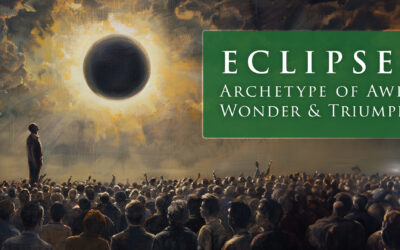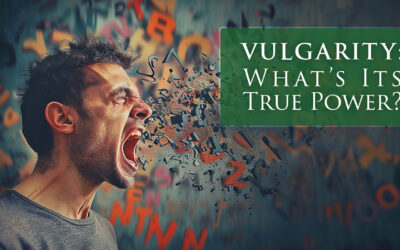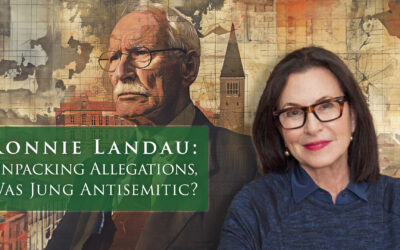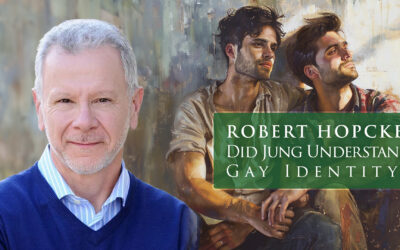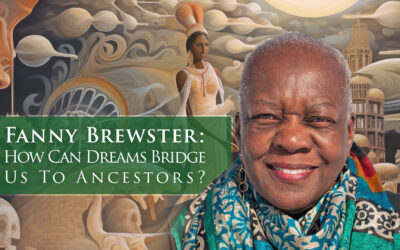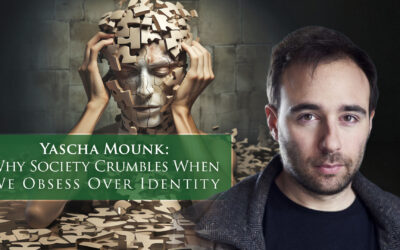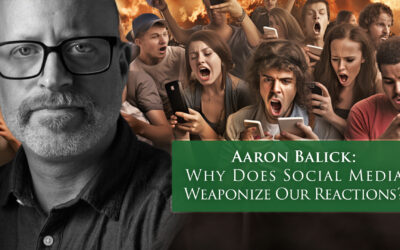Solar eclipses captivate and draw us into their path, awakening a sense of awe and existential insight. They remind us of nature’s immense power and the transience of our existence. During eclipses, animals and plants exhibit strange behavior, and our fascination with astrology and celestial influences reflects a universal curiosity to understand the mysteries of the universe and our place in it.
VULGARITY: What’s Its True Power?
Mar 28, 2024
Our collective fascination with vulgarity, obscenity, and profanity lies in the thrill of transgression and the need to articulate the unspoken aspects of human experience. As we navigate social acceptability, the vulgar mirrors our deepest shadow and wildest laughter, a space where sacred and profane dance in the liminal light of truth and rebellion. Engaging vulgarity challenges the rigid confines of propriety.
Ronnie Landau: Unpacking Allegations, Was Jung Antisemitic?
Mar 21, 2024
How do we interpret and evaluate C.G. Jung’s complex legacy in light of his interactions with Jewish individuals and the allegations of antisemitism, considering the nuanced historical context in which he lived and worked?”
ROBERT HOPCKE: Did Jung understand gay identity?
Feb 29, 2024
Jungian psychology has a fresh take on integrating the shadow and the individuation process for LGBTQ+ folks. It encourages everyone to embrace their identity to achieve authenticity and wholeness. Reinterpreting Jung’s anima and animus concepts challenges the traditional binary notions of gender and sexuality, leading to a more fluid and inclusive understanding of these concepts. Dreams and fantasies can help people understand themselves better, showing them the archaic strata of desires, conflicts, and potentials hidden within their psyche. By engaging with the collective unconscious and its archetypes, LGBTQ+ individuals can better grasp themselves, fostering a sense of belonging and connection to the broader human experience. Jungian psychology recognizes and validates the complexity and diversity of human experiences, offering a framework that acknowledges and explores the many ways LGBTQ+ identities manifest and evolve.
THE VITAL SPARK: Reclaim Your Outlaw Energies and Find Your Feminine Fire
Feb 22, 2024
The Vital Spark represents the true essence of an individual’s authentic self. It encompasses the dynamic qualities that drive personal growth, creativity, and self-assertion. It embodies the deep-seated energies and potentials within us that, when acknowledged and embraced, lead to a life of fuller expression, resilience, and purpose.
UNREQUITED LOVE: Can Eros be revived?
Feb 15, 2024
The arrows of Eros strike our hearts, and we are filled with wild love. Psychotherapists call this limerence, that initial stage of love when all we ache for is found in one person. This projection can carry us into a new relationship with intrepid confidence for a time. If that love is unreturned, a second archetype, Anteros, is called forth to punish those who reject love. Armed with his lead club, he strikes the unloving and drives them to ruin.
SPEAKING TRUTH: Is it venom or a cure?
Feb 1, 2024
We examine the multifaceted nature of Truth and its impact on individuals and communities. We touche on the challenges of speaking Truth to power, the psychological dynamics of scapegoating and being disbelieved, the role of psychotherapy in uncovering and dealing with personal truths, and the significance of narrative and perception in shaping our understanding of reality.
Three Jungians on Psychedelics: Is Tripping a Valid Path of Self-Discovery?
Jan 4, 2024
Psychedelics may help us access deep layers of the unconscious, revealing aspects of psyche that are often inaccessible through traditional psychoanalytic methods alone. Jungian analysis, with its focus on archetypes and the collective unconscious, provides a framework for interpreting and integrating the complex, symbolic experiences often encountered in psychedelic states. The combination of psychedelics and analysis could facilitate a more profound and holistic healing process, addressing not only individual psychological issues but also connecting with broader, universal aspects of human experience. This integrated approach could accelerate the therapeutic process, allowing for quicker breakthroughs and more profound insights than can be achieved through either method independently.
Fanny Brewster: How can dreams bridge us to ancestors?
Dec 28, 2023
Jung’s concept of the collective unconscious emphasized the universal psychological substrate common to all humans. While he acknowledged the effects of the cultural unconscious, his work, at times, fell into the trap of perpetuating oversimplified and racially prejudiced stereotypes. Jung’s writings that refer to Africanist peoples, in particular, suffer from offensive assumptions.
Yascha Mounk: Why Society Crumbles When We Obsess Over Identity
Dec 14, 2023
In an era where identity politics reshapes global narratives, the urgent need to balance diversity with universal human values becomes clear. The melding of postmodernism, postcolonialism, and critical race theory raises a provocative question: Can embracing universal principles truly bridge our deepening societal divides? This challenge calls for a bold reimagining of our approach to social harmony and equality, urging a critical reassessment of how we navigate identity and inclusivity in a complex, interconnected world.
SURVIVING MASS TRAUMA: How did Jung process catastrophic events?
Dec 7, 2023
The great catastrophe of Jung’s generation was the rise of Nazi Germany and WWII. His insights into the collective psyche of nations remain relevant today as we grapple with war and violence worldwide.
Aaron Balick – Why does social media weaponize our reactions?
Nov 9, 2023
Reactivity often usurps reflective response, with social media fueling instantaneous, reflexive reactions. This hampers thoughtful decision-making and obscures the other party’s perspective, trapping discourse within a reactive cycle. Emotional reactivity, a necessary short-term survival mechanism, can become a long-term maladaptive response, leading to perpetual defense rather than constructive dialogue. Such sustained reactivity is evident in the widespread use of social media, where the nuanced, truth-seeking aspects of communication are eclipsed by the platform’s inherent design that favors sensationalism and emotional contagion. This environment diminishes the capacity for mutual understanding and comprehensive evaluation of complex social issues, fostering a climate where binary thinking and polarization thrive.
